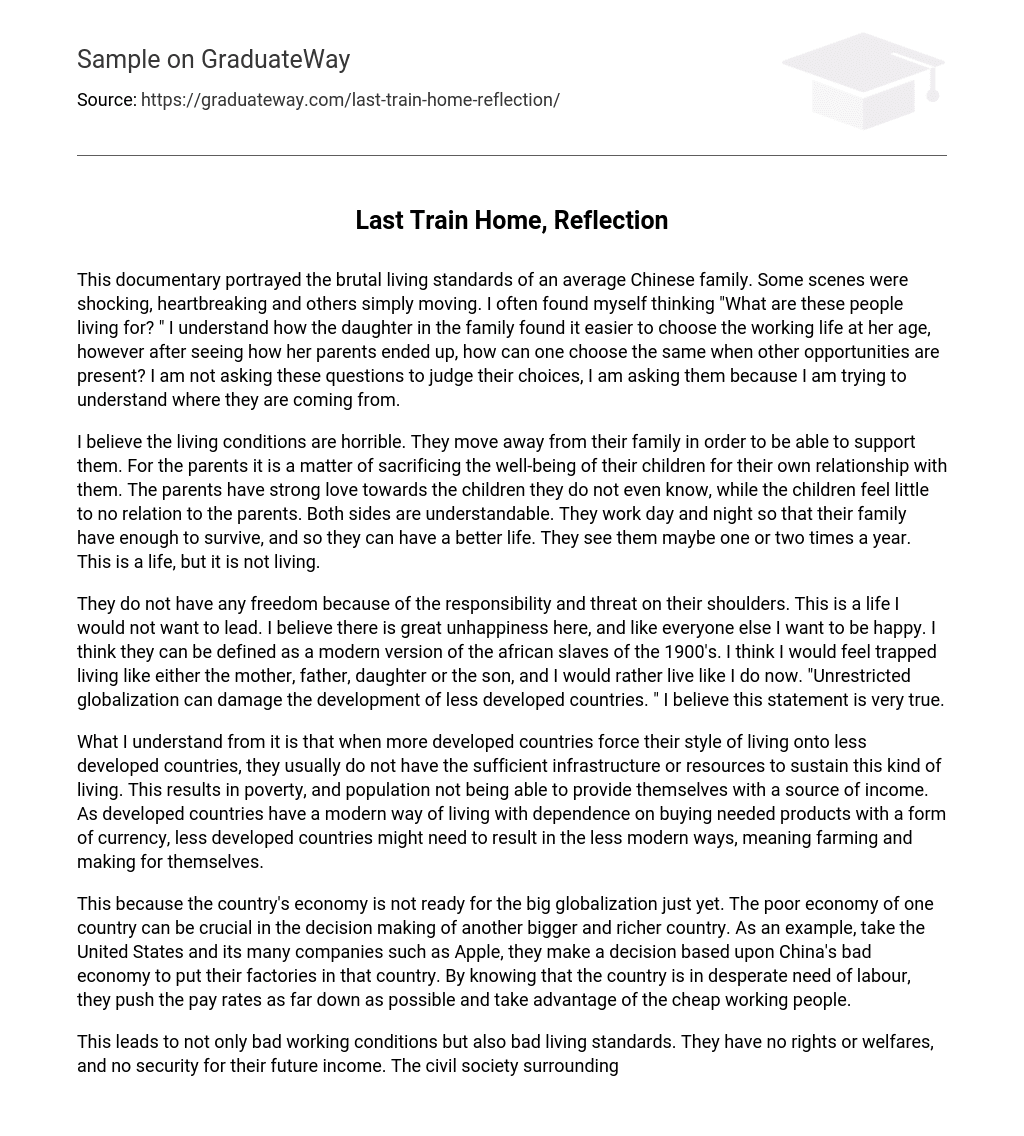This documentary depicted the difficult life of a typical Chinese family. It showed both shocking and sorrowful scenes, as well as heartwarming ones. I often wondered, “What drives them to persevere?” While I understand why the daughter chose to work at such a young age, seeing what happened to her parents made me question why someone would choose a similar path when there are other options available. It is important to clarify that my intention in asking these questions is not to criticize their choices, but rather to understand their point of view.
The living conditions are extremely unpleasant, as families must separate in order to provide financial support. The parents have to give up their own relationship with their children for their well-being. Despite having little knowledge about their children, the parents still feel a deep affection for them. Unfortunately, the children do not experience much or any emotional connection with their parents. It is understandable from both perspectives – the parents work tirelessly day and night to ensure the survival of their family and a better future, only being able to see their loved ones once or twice a year. This means they are simply existing rather than truly living.
The individuals in question lack freedom due to the weight of responsibility and threat they bear. It is a life that I personally do not wish to lead, as I perceive great unhappiness within it. I see them as a contemporary version of the African slaves from the 1900s. Whether it’s the mother, father, daughter, or son, I would feel trapped living as any of them and would prefer my current way of life. “Unrestricted globalization can hinder the progress of underdeveloped nations.” I strongly support this assertion.
What I comprehend is that when more developed countries impose their lifestyle on less developed countries, these nations often lack the necessary infrastructure and resources to maintain such a way of life. Consequently, poverty ensues, and the population struggles to generate income. While developed countries rely on purchasing essential goods using currency, less developed countries may need to resort to traditional methods like farming and self-production.
This is because the country’s economy is not yet prepared for extensive globalization. The weak economy of one country can significantly influence the decision-making process of a larger and wealthier country. For instance, consider the United States and its numerous companies like Apple. They decide to place their factories in China due to its struggling economy. Being aware that the country requires a substantial workforce, they exploit this opportunity by minimizing wages and taking advantage of the affordable labor force.
This results in both poor working conditions and living standards. These workers lack basic rights, welfare benefits, and future income security. The actions of civil society can influence the situation within a country. One way is by boycotting products known to be produced in factories that exploit their employees. By reducing demand for these products, eventually the factories will no longer be able to produce them.
Ultimately, numerous countries may be forced to close while others may alter their production methods. A banana republic is a term from political science that refers to a politically unstable nation whose economy heavily relies on the exportation of a single resource-limited product. Honduras, in the past, belonged to this category as they exported bananas. These bananas were sold to the United States at an exceptionally low cost, and in the US, they were sold at a slightly higher price yet still cheaper compared to other fruits being sold. This significantly boosted their popularity.





